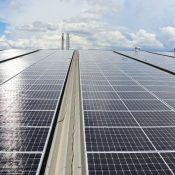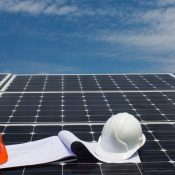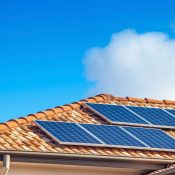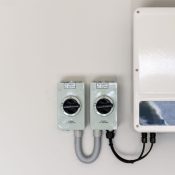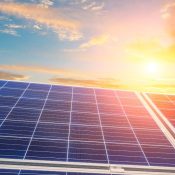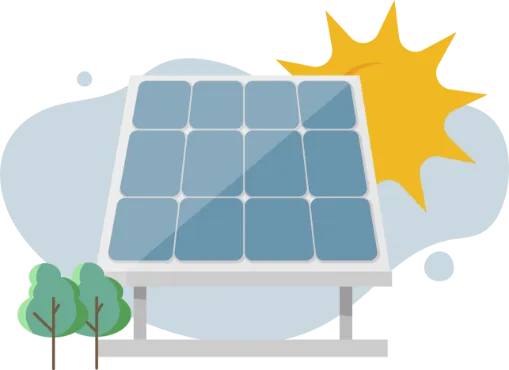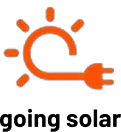Difference Between On-Grid And Off-Grid Solar System
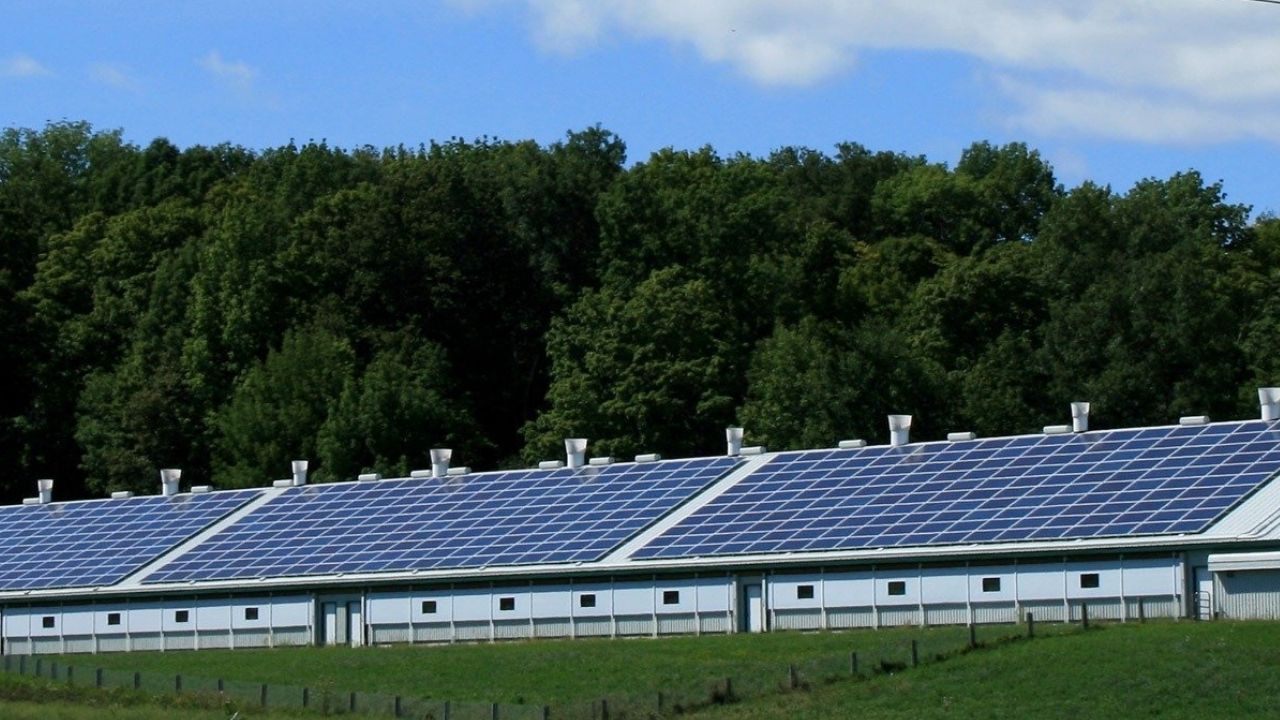
Solar power is getting more popular among homeowners and businesses who want to cut down on their carbon emissions and save money on electricity. There are two main kinds of solar setups: on-grid and off-grid.
On-grid systems hook up to your local electricity network. They add to the power you get from your energy provider. Off-grid systems, on the other hand, work alone and store energy in batteries.
Both types have similar advantages. The best solar system for your home or business depends on what you need and your situation. Find out how they’re different and which one—on-grid, off-grid, or a mix of both—is right for you. Are you ready to learn more? So, let’s dive in!
Key Takeaways
- On-grid systems connect to the public electricity grid, while off-grid systems operate independently.
- On-grid systems can feed excess electricity back into the grid, earning credits or payments. Off-grid systems require battery storage for excess energy.
- During power outages, on-grid users may lose power temporarily. Off-grid users have their own power source and are not affected.
- Electricity billing differs between on-grid and off-grid systems. On-grid users receive bills based on net metering, while off-grid owners manage their own payment system.
What are On-Grid and Off-Grid Solar Systems?
On-Grid Solar System, also known as grid-tied or grid-connected solar systems, refer to a setup where solar panels are connected to the utility grid. Off-Grid Solar Systems, on the other hand, are self-sufficient systems where the owner is responsible for energy generation and distribution.
On-Grid Solar System (Grid-Tie or Grid Connected)
An on-grid solar system links to the public power grid. This type is known as grid-tie or grid-connected in Ireland. With this system, your house uses solar energy and can also get extra power from the grid if needed.
The best part is you can even give unused solar energy back to the grid. As a result, many houses in Ireland choose this type of system! It costs less because it does not need batteries to store electric power like other types do.
Plus, using an on-grid solar system helps cut down your electricity bills while making your home greener with renewable energy!
Off-Grid Solar System (Owner of Energy Generation and Distribution)
An off-grid solar system in Ireland is a type of solar energy system that operates independently and is not connected to the public electricity grid. It generates its own electricity and stores any excess energy in batteries for later use.
This means that homeowners with an off-grid solar system have complete control over their energy generation and distribution, providing them with greater independence from the utility grid.
Moreover, off-grid systems are commonly used in remote areas where connecting to the grid is not practical or cost-effective. They require batteries for storing electricity, which allows homeowners to have power even when there is no sunlight available.
Differences Between On-Grid and Off-Grid Solar Systems
On-Grid Solar Systems are connected to the utility grid and allow homeowners to access electricity when their solar panels don’t produce enough energy, while Off-Grid Solar Systems operate independently from the grid, relying solely on the owner’s energy generation and distribution.
Handling excess production is easier with On-Grid systems as the surplus can be sold back to the grid, whereas Off-Grid owners must rely on energy storage or alternative power sources.
In case of grid outages, On-Grid users may lose power temporarily, but Off-Grid users won’t be affected as they have their own power source.
Finally, billing for electricity differs between the two systems: On-Grid users receive bills based on net metering (difference between consumption and production), while Off-Grid owners manage their own payment system.
Access to Electricity
In an on-grid solar system, you have easy access to electricity because it is connected to the public grid. This means that when your solar panels generate electricity, any excess power can be fed back into the grid for others to use.
When you need more electricity than your panels can produce, you can draw power from the grid. It’s like having a backup source of electricity whenever you need it. With an off-grid system, however, you are fully responsible for generating and storing all of your own electricity.
You don’t have a connection to the public grid, so there may be times when you have limited or no access to electricity if your renewable energy sources cannot keep up with demand or if your batteries run out of stored power.
Handling Excess Production
When it comes to handling excess electricity production, there is a difference between on-grid and off-grid solar systems in Ireland. In an on-grid system, any excess electricity generated by your solar panels is sent back to the public electricity grid for others to use.
This means that you can earn credits or even get paid for the extra energy you produce. On the other hand, with an off-grid system, you need to have battery storage to store any excess electricity.
These batteries will then provide power during times when your solar panels are not generating enough energy. So if you want to make use of any extra energy produced by your solar panels, it’s important to consider whether you want an on-grid or off-grid system for your home in Ireland.
Grid Outages
During grid outages, on-grid solar systems are designed to automatically shut down for safety reasons. This means that even if you have solar panels installed, you won’t be able to use them during a power outage.
This is because on-grid systems rely on the utility grid to function and do not have energy storage capabilities. It’s important to keep in mind that while solar panels can reduce your reliance on the grid and lower your electricity bills, they cannot provide power during outages unless you have a battery backup system or an off-grid solar system.
Furthermore, with an off-grid system, you can store excess electricity generated by your solar panels in batteries and rely entirely on renewable energy even when there’s a grid outage.
Billing for Electricity
In Ireland, the way electricity is billed can differ between on-grid and off-grid solar systems. With on-grid systems, homeowners are connected to the public electricity grid, so they receive a bill from their utility company for the electricity they use.
Any excess electricity generated by their solar panels can be sent back to the grid and credited against future bills.
On the other hand, with off-grid systems, homeowners are responsible for generating and storing all of their own electricity. They don’t receive a bill from a utility company because they’re not connected to the grid.
Instead, they need to rely solely on their own energy generation and storage systems.
Hybrid Solar Energy Systems
Hybrid solar energy systems are an innovative option for homeowners in Ireland. These systems combine the benefits of both on-grid and off-grid solar systems. With a hybrid system, you can generate your own electricity using solar panels and also store excess electricity in batteries.
One advantage of hybrid systems is that they offer greater energy independence. You can use the stored electricity during times when there is no sunlight, such as at night or on cloudy days. This means you won’t have to rely completely on the grid for your power needs.
Another benefit is that hybrid systems allow you to take advantage of any excess electricity generated by your solar panels. Instead of sending it back to the grid like with an on-grid system, you can store it in batteries for later use. This way, you can make sure all the energy produced by your panels is put to good use.
Hybrid solar energy systems are a smart choice for homeowners who want to reduce their reliance on the grid while still having access to reliable power. By combining renewable energy generation with storage capabilities, these systems provide a sustainable and efficient solution for meeting your electricity requirements.
Final Thoughts!
Choosing between on-grid and off-grid solar systems depends on your specific needs and location. On-grid systems offer grid reliability and possible energy credits, while off-grid systems provide total independence, ideal for remote areas. Both reduce carbon footprints, supporting environmental sustainability. Your choice should match your energy requirements and sustainability goals for the best fit.
However, if you are interested in installing a solar system for your home in Ireland, at Going Solar we can help you find the best option for your needs and budget. So, whether you want an on-grid or off-grid system, we have the expertise and experience to make it happen. Contact us today for a free consultation and quote!
Planning a switch to solar energy?
Contact Going Solar now and Get Free Advice & Quote Within Minutes!
Frequently Asked Questions
Contact Going Solar Now!
Joe Brennan
Founder @ Going Solar
Joe Brennan, the founder of Going Solar, is dedicated to making solar power mainstream in Ireland and meet SEAI objectives. With a focus on affordability and sustainability, he is bringing renewable energy solutions to homes, reducing costs & environmental impact.
Recent Posts

